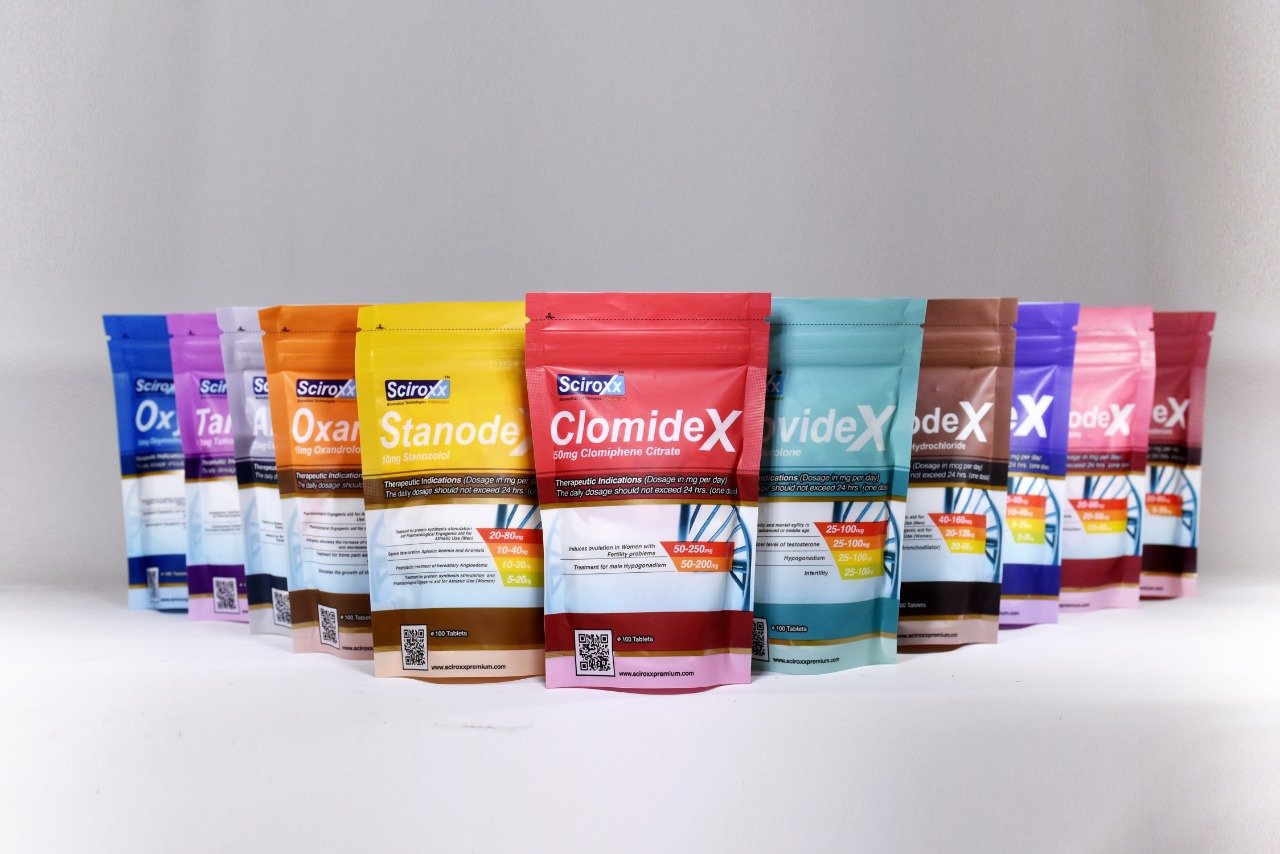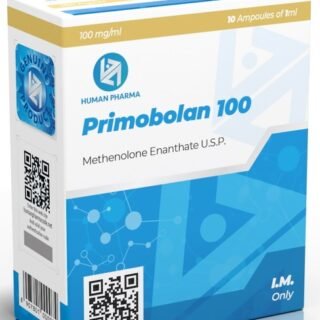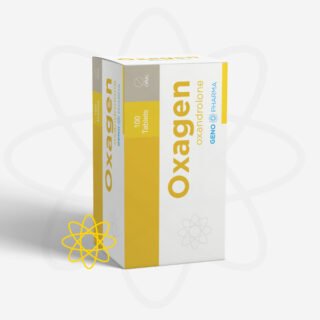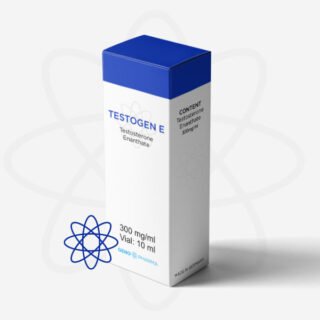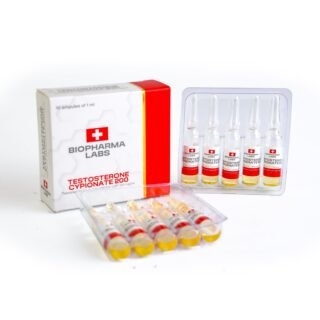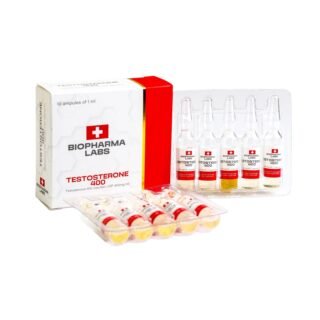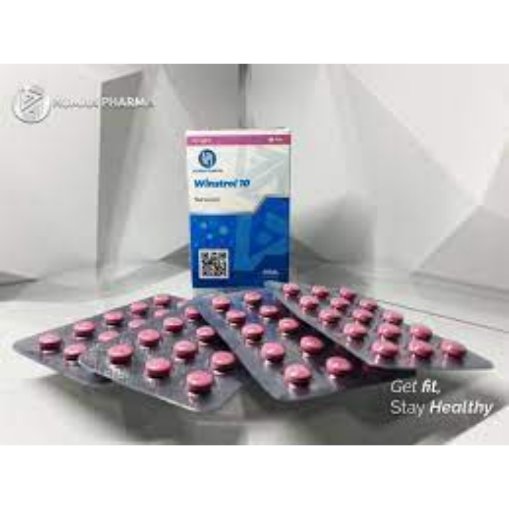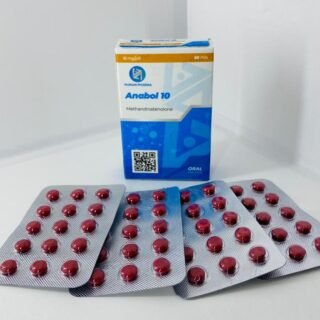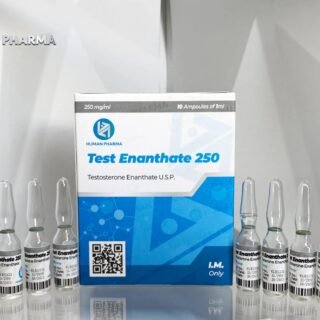Category
- Best Peptides for muscle growth
- Geno Pharma Domestic Warehouse 2 (Canada&USA)
- GPH(Domestic Shipping US) Warehouse 1
- Human Pharma Premium
- Phar Labs Premium-Select
- Steroids on Sale USA, Real Steroids Online
- New arrivals in USA
- Most popular steroids in USA
- Antiestrogens / Gonadotropins
- Bangkok Steroid USA
- Biopharma Steroid USA
- British Dragon
- Anabolic Steroids for Horses
- Fat-burners
- Gen Pharma USA
- Medical Pharma Steroid USA
- Medical Tech Steroid USA
- Novocrine Steroids
- HGH USA
- Omega Labs Steroid USA
- Rotterdam Steroids USA
- SARMs USA
- Sciroxx
- Sydgroup Steroid USA
- Big vetenary Steroid USA
- Watson Steroids
- XT Labs Steroids
Most Popular steroids USA
-
 Primobolan for sale 100mg 10 ml Human Pharma in USA
$115.00
Primobolan for sale 100mg 10 ml Human Pharma in USA
$115.00 -
 NPP Steroid 100mg 10 ml Premium Domestic USA
NPP Steroid 100mg 10 ml Premium Domestic USA
$99.00Original price was: $99.00.$80.00Current price is: $80.00. -
 Anavar for Sale in USA – 10mg 80 Tabs GPH-Premium
Anavar for Sale in USA – 10mg 80 Tabs GPH-Premium
$110.00Original price was: $110.00.$80.00Current price is: $80.00. -
 Buy Anavar 10mg – Purchase Geno Pharma
$99.00
Buy Anavar 10mg – Purchase Geno Pharma
$99.00 -
 Testosterone Cypionate Buy 300mg 10ml Geno Pharma
$99.00
Testosterone Cypionate Buy 300mg 10ml Geno Pharma
$99.00 -
 Buy Testosterone E 300mg 10 ml Geno Pharma Domestic USA/CA
$99.00
Buy Testosterone E 300mg 10 ml Geno Pharma Domestic USA/CA
$99.00 -
 Testosterone Cypionate 200 Biopharma 10 amp
Testosterone Cypionate 200 Biopharma 10 amp
$99.00Original price was: $99.00.$72.00Current price is: $72.00. -
 Testosterone 400 Biopharma 10 Ampoules
Testosterone 400 Biopharma 10 Ampoules
$99.00Original price was: $99.00.$75.00Current price is: $75.00. -
 Eq 300 steroid Rotterdam 10ml
Eq 300 steroid Rotterdam 10ml
$79.00Original price was: $79.00.$69.00Current price is: $69.00. -
 Steroid Deca Geno Pharma 300mg 10ml
Steroid Deca Geno Pharma 300mg 10ml
$110.00Original price was: $110.00.$99.00Current price is: $99.00. -
 Boldenone Cypionate 200 mg / 10 mL Geno Pharma
Boldenone Cypionate 200 mg / 10 mL Geno Pharma
$90.00Original price was: $90.00.$85.00Current price is: $85.00. -
 Somatrox XT Labs 150 IU x 10 vials (15 ui each)
Somatrox XT Labs 150 IU x 10 vials (15 ui each)
$450.00Original price was: $450.00.$350.00Current price is: $350.00.

Oral Winstrol Human Pharma 10mg 60 tabs
$115.00 Original price was: $115.00.$99.00Current price is: $99.00.
Product Name: Oral Winstrol Human Pharma 10mg 60 Tabs
Description:
Oral Winstrol by Human Pharma delivers 10mg of stanozolol per tablet, offering a potent formula designed to enhance athletic performance and support muscle retention. Widely favored by bodybuilders, this product is ideal for cutting cycles, helping users maintain lean muscle mass while reducing body fat. With a 60-tab supply, it provides a convenient and effective option for achieving fitness goals. Stanozolol is known for its anabolic properties that promote muscle growth without causing significant water retention, making it a top choice for those looking to sculpt a lean, defined physique.
Key Features:
- Stanozolol Dosage: 10mg per tablet
- Quantity: 60 tablets per bottle
- Ideal For: Cutting cycles, lean muscle retention, and athletic performance enhancement
- Benefits: Helps maintain muscle mass, supports fat loss, and promotes a more defined appearance
- Usage: Commonly used by bodybuilders and athletes for performance improvement and physique enhancement
Share this page:
- Click to share on X (Opens in new window) X
- Click to share on Facebook (Opens in new window) Facebook
- Click to email a link to a friend (Opens in new window) Email
- Click to share on LinkedIn (Opens in new window) LinkedIn
- Click to share on Reddit (Opens in new window) Reddit
- Click to share on Pinterest (Opens in new window) Pinterest
- Click to share on Telegram (Opens in new window) Telegram
- Click to share on WhatsApp (Opens in new window) WhatsApp
- Click to share on Tumblr (Opens in new window) Tumblr
Oral Winstrol Human Pharma 10mg 60 Tabs: Uses, Benefits
Oral Winstrol by Human Pharma offers a potent formulation containing 10 mg of stanozolol per tablet. It is primarily used in medical settings for specific conditions, such as hereditary angioedema and muscle-wasting diseases. The product is available in bottles of 60 tabs, providing a convenient supply for ongoing treatment. Understanding its use and effects is essential for both patients and healthcare providers.
Understanding Oral Winstrol
The following sections provide an in-depth review of Oral Winstrol, exploring its fundamental aspects, historical context, and the distinctions between its brand and generic forms.
What is Stanozolol?
Stanozolol is a synthetic anabolic steroid derived from testosterone. It was developed to promote muscle growth and improve physical performance, while also possessing unique properties that distinguish it from other steroids. Stanozolol enhances protein synthesis and nitrogen retention in the body, which are crucial factors in muscle development.
This compound is utilized medically in various contexts, but it is also known for its controversial use among athletes and bodybuilders aiming to enhance their performance. The ability of stanozolol to stimulate muscle growth without significant estrogenic effects makes it particularly appealing to individuals in the sports community.
Historical Background of Winstrol
Winstrol was first introduced in the 1960s by Winthrop Laboratories. Initial medical applications included treating patients experiencing severe weight loss and conditions associated with muscle wasting. The accessibility of stanozolol led to its popularity in both medical and athletic circles.
Over the years, Winstrol gained notoriety for its use in performance enhancement despite being banned by many sports organizations. The compound has been the subject of various studies examining its effectiveness and safety, contributing to ongoing discussions around its use in both medical and non-medical settings.
Brand Name vs. Generic Stanozolol
Winstrol, recognized as the brand name, is available in both oral and injectable forms. The generic version, stanozolol, offers similar pharmacological effects but is marketed under various labels. Patients and athletes must be aware of the differences in quality, efficacy, and potential side effects associated with different brands and formulations.
- Brand Name: Typically, brand name products like Winstrol may be more expensive due to branding and marketing costs.
- Generic Stanozolol: Often more affordable and can be produced by multiple manufacturers, leading to variability in quality.
- Considerations: Factors such as sourcing, manufacturer reputation, and product testing should be considered when choosing between brand name and generic versions.
Medical Indications of Winstrol
Winstrol, or stanozolol, is utilized in various medical contexts due to its specific therapeutic properties. Below are the primary medical indications for its use.
Use for Hereditary Angioedema
Hereditary angioedema is a genetic condition marked by recurrent episodes of severe swelling in various parts of the body, including the face, extremities, gastrointestinal tract, and airway. Winstrol has been effectively used to reduce the frequency and severity of these episodes, enhancing the quality of life for affected individuals.
This condition arises from a deficiency or dysfunction of C1 esterase inhibitor, which plays a crucial role in regulating the complement and contact systems of blood plasma proteins. By using stanozolol, patients can experience improved control over their symptoms.
Muscle Wasting Conditions
Winstrol is also indicated for patients experiencing muscle wasting due to chronic illnesses, prolonged immobilization, or severe trauma. The anabolic properties of stanozolol help promote lean muscle mass, aiding recovery and overall health.
Medical professionals may prescribe Winstrol to individuals recovering from severe infections, major surgeries, or those with malignancies that contribute to cachexia. The goal is to enhance nutrient retention in the body, fostering an environment conducive to muscle growth and healing.
Other Approved Treatments
Chronic Obstructive Pulmonary Disease (COPD)
In some cases, stanozolol may be used off-label to improve muscle strength and physical performance in patients with COPD who have significant muscle wasting.
Post-Surgical Recovery
After major surgical procedures, particularly in older patients or those undergoing long, invasive surgeries, stanozolol can help reduce the risk of postoperative complications by facilitating muscle regrowth.
Bone Health
In certain circumstances, Winstrol may be utilized to promote bone density in patients at risk of osteoporosis, especially when combined with other therapies aimed at strengthening skeletal health.
Mechanism of Action
The mechanism of action of Winstrol is multifaceted, primarily involving its anabolic and androgenic properties. These characteristics contribute to its effectiveness in various therapeutic applications, influencing both muscle growth and certain physiological processes in the body.
Anabolic and Androgenic Properties
Stanozolol, the active ingredient in Winstrol, exhibits strong anabolic and androgenic actions. The anabolic properties are responsible for promoting muscle growth and enhancing physical performance. This makes it beneficial for patients suffering from muscle-wasting conditions. The androgenic effects, while more pronounced in male patients, also contribute to the maintenance of male sexual characteristics.
- Increased protein synthesis: Stanozolol supports muscle repair and growth by facilitating the process of protein synthesis, which is crucial for muscle recovery after exercise or injury.
- Enhanced red blood cell production: The drug can promote erythropoiesis, leading to improved oxygen delivery to muscle tissues, resulting in enhanced endurance and performance.
- Reduction of muscle catabolism: By mitigating the breakdown of muscle tissue, Winstrol aids in preserving lean body mass in patients recovering from severe illnesses.
Impact on Nitrogen Retention
Nitrogen retention is a critical factor in anabolism. Stanozolol encourages the body to retain more nitrogen than it loses. This creates a positive nitrogen balance, which is essential for muscle growth and overall recovery.
- Increased anabolic environment: By retaining nitrogen, the body is in a more favorable state for building muscle tissue.
- Support for metabolic processes: Enhanced nitrogen levels assist in various metabolic activities, further contributing to enhanced physical performance.
- Improvement in overall health: Retaining nitrogen helps maintain a robust metabolic state, positively affecting energy levels and vitality.
Inhibition of Bradykinin Production
Bradykinin is a peptide that can cause inflammation and pain. Stanozolol’s mechanism includes the inhibition of bradykinin production, resulting in decreased swelling and discomfort associated with conditions like hereditary angioedema.
- Anti-inflammatory effects: By reducing bradykinin levels, Winstrol can alleviate symptoms related to inflammation, making it valuable for patients with specific medical conditions.
- Management of angioedema symptoms: The inhibition of this peptide contributes to lowering the frequency and severity of episodes in patients with hereditary angioedema.
Dosage and Administration
Understanding the appropriate dosage and administration routes for Winstrol is crucial for ensuring therapeutic efficacy while minimizing potential side effects. This section outlines recommended guidelines, necessary adjustments, and best practices for oral administration.
Recommended Dosage Guidelines
The initial dosage of Winstrol varies depending on the condition being treated and the individual patient’s response. Typically, healthcare providers may recommend starting with:
- 2 mg three times a day for most patients.
This regimen helps establish a baseline for evaluating the drug’s effectiveness and tolerability. After assessing the patient’s response within the first few weeks, the dosage may be adjusted to:
- 2 mg once daily after one to three months of treatment for maintenance, depending on the clinical situation.
It is imperative for patients to adhere strictly to the prescribed dosages to optimize treatment outcomes and reduce the likelihood of adverse reactions.
Adjustments for Individual Needs
Each patient’s reaction to Winstrol can differ due to various factors such as age, weight, overall health status, and specific medical conditions. Therefore, dosage adjustments may be necessary. Physicians should monitor patients regularly and consider the following:
- Response to treatment: If patients show signs of improvement or side effects, subsequent dosages can be modified accordingly.
- Side effects: Monitor for adverse reactions that may require dosage reduction or temporary discontinuation.
- Other medical conditions: Pre-existing health issues, especially liver or kidney problems, may necessitate lower dosages or alternative therapies.
Oral Administration Best Practices
Proper administration of Winstrol is critical for achieving desired therapeutic effects. The following best practices should be adhered to:
- Taking with or without food: Winstrol can be taken with food to minimize gastrointestinal discomfort. However, food may alter absorption rates, so consistency in the administration method is advised.
- Certain timing: Regular dosing times help maintain stable blood levels of the medication.
- Hydration: Patients are encouraged to maintain adequate hydration during treatment as Winstrol may place additional strain on the kidneys.
- Avoiding alcohol: Consumption of alcohol can increase the risk of liver damage, particularly during treatment with Winstrol.
Close collaboration with healthcare providers for monitoring and adjustment of treatment plans ensures that the individual patient’s needs are met effectively.
Potential Side Effects
Understanding the potential side effects of Winstrol is crucial for users and healthcare providers alike. While this medication can offer therapeutic benefits, it also carries a risk of various adverse effects that must be carefully monitored.
Hepatic Side Effects
The liver is particularly susceptible to the effects of anabolic steroids like stanozolol. Patients should be aware of the following hepatic side effects:
- Jaundice: This condition can arise due to liver dysfunction, characterized by a yellowing of the skin and eyes.
- Hepatotoxicity: The potential for liver toxicity may lead to serious complications, including liver damage over time.
- Hepatic tumors: Although rare, there have been reports of liver tumors associated with prolonged use of anabolic steroids.
Routine liver function tests are recommended to monitor any changes that could indicate hepatic distress.
Genitourinary Effects in Males and Females
Both men and women may experience genitourinary side effects when using Winstrol. These include:
- Males:
- Inhibition of testicular function: This can reduce testosterone levels, leading to various physiological changes.
- Oligospermia: A decrease in sperm count is a significant concern for male users.
- Priapism: This painful and prolonged erection can occur, requiring immediate medical attention.
- Females:
- Virilization: Women may experience side effects such as deepening of the voice and excessive hair growth on the body.
- Menstrual irregularities: Changes in menstrual cycles can be expected, ranging from irregular periods to complete cessation.
Central Nervous System Reactions
The impact of Winstrol on the central nervous system can also be noteworthy. Users may encounter:
- Mood changes: Some individuals have reported experiencing mood swings, anxiety, or aggression.
- Insomnia: Sleep disturbances can occur, complicating the management of overall health.
- Depression: While less common, there is a possibility of depressive symptoms manifesting in some users.
Dermatological Concerns
Skin-related issues can arise during treatment with Winstrol, particularly in those predisposed to acne. Notable concerns include:
- Acne: Increased oiliness of the skin may lead to breakouts, especially on the face and back.
- Oily skin: Some individuals experience a significant increase in skin oiliness, which can contribute to acne development.
Maintaining good hygiene and using products designed for oily skin might help alleviate some of these dermatological issues.
Drug Interactions
Understanding drug interactions is crucial when prescribing or using Oral Winstrol. It can affect the efficacy and safety of concurrent medications. Monitoring and management of these interactions are essential for patient safety.
Interactions with Anticoagulants
Oral Winstrol has been reported to interact with anticoagulants, such as warfarin. The use of anabolic steroids like Winstrol can enhance the anticoagulant effects, leading to an increased risk of bleeding. This alteration occurs because Winstrol may affect protein synthesis and consequently the metabolism of anticoagulants.
- Patients taking anticoagulants must be closely monitored for bleeding signs and symptoms, including unusual bruising, blood in urine or stool, and prolonged bleeding from cuts.
- Adjustments to anticoagulant dosages may be necessary when starting or discontinuing Winstrol therapy.
Effects on Anti-Diabetic Drugs
The administration of Winstrol can also impact the effectiveness of anti-diabetic medications, including insulin and oral hypoglycemic agents such as glimepiride and metformin. Changes in blood glucose levels may occur, making it necessary to monitor glucose control in patients with diabetes.
- Winstrol’s anabolic effects may increase insulin resistance, requiring adjustments in the dosage of anti-diabetic medications.
- Regular blood glucose monitoring is important for those on combination therapies to prevent hypoglycemia or hyperglycemia.
Drug Interaction Management
To effectively manage potential drug interactions, a comprehensive approach should be taken. This includes reviewing all medications and supplements the patient is taking, as well as discussing any recent changes in health status.
- Healthcare providers should assess the risk of interactions before initiating Winstrol and adjust dosages accordingly.
- Patient education on recognizing symptoms of adverse reactions is vital for timely intervention.
- Regular follow-ups should be scheduled to evaluate the patient’s response to therapy and any emerging side effects.
Contraindications and Precautions
Understanding the contraindications and precautions associated with Winstrol is crucial for ensuring patient safety and effective treatment. The following subsections outline specific populations that should avoid this medication.
Patients with Liver or Kidney Issues
Winstrol can have significant effects on liver and kidney function. Patients with pre-existing conditions affecting these organs are at a higher risk of experiencing severe side effects. The use of this medication in individuals with:
- Liver diseases, such as hepatitis or cirrhosis, should be strictly avoided. The hepatotoxic nature of stanozolol can exacerbate liver damage.
- Kidney disorders, including nephritis or renal failure, is also discouraged. The potential for altered kidney function can lead to accumulation of the drug and increased toxicity.
Regular monitoring of liver enzymes and kidney function tests is essential for any patient on Winstrol, especially those with prior health issues related to these organs.
Use During Pregnancy and Lactation
The safety of Winstrol during pregnancy and breastfeeding has not been established. Stanozolol can cause significant risks to a developing fetus, including:
- Possible congenital malformations, which may occur due to androgenic properties of the medication.
- Potential hormonal imbalances in the baby, particularly if the mother continues to use the drug during late pregnancy.
Furthermore, it is unknown if stanozolol is excreted in breast milk. Due to the potential for serious adverse effects, the use of Winstrol is contraindicated in pregnant and nursing women.
Cancer Patients Considerations
Individuals with a history of or current cancer, particularly prostate or breast cancer, should avoid using Winstrol. The drug contains anabolic steroids, which can:
- Stimulate the growth of certain hormone-sensitive tumors.
- Interfere with cancer treatments due to its androgenic effects, complicating the management of the disease.
Healthcare professionals should evaluate the risks versus benefits before prescribing this medication to patients with a history of cancer, ensuring careful consideration of their overall health status.
Monitoring During Treatment
Effective monitoring during treatment with Oral Winstrol is essential for ensuring patient safety and optimizing therapeutic outcomes. Regular assessments help identify any adverse effects early and ensure the drug’s efficacy. The following subsections outline the key areas of monitoring that should be prioritized.
Liver Function Tests
Liver function tests are critical when monitoring patients undergoing treatment with Winstrol. Since stanozolol can exert hepatotoxic effects, these tests help identify any liver-related complications that may arise.
- Tests typically include measurements of liver enzymes such as alanine aminotransferase (ALT), aspartate aminotransferase (AST), and alkaline phosphatase (ALP).
- Regular monitoring is recommended, particularly during the initial stages of treatment, to assess the liver’s response to the medication.
- An increase in liver enzymes could indicate irritation or damage to liver tissues, necessitating further evaluation or potential modification of the treatment plan.
Cardiovascular Risk Assessments
Monitoring cardiovascular health is crucial for patients taking anabolic steroids like Winstrol. These agents can influence lipid profiles and overall heart health, thereby heightening the risk of cardiovascular diseases.
- Healthcare providers should conduct periodic evaluations that include blood pressure monitoring and assessments of heart rate.
- Additionally, a thorough review of the patient’s family history of heart disease can provide insight into individual risk factors.
- Assessments of symptoms related to cardiovascular issues, such as chest pain or shortness of breath, should also be an integral part of the monitoring process.
Serum Lipid Profile Monitoring
Monitoring lipid profiles is necessary to evaluate the effects of Winstrol on cholesterol levels. Anabolic steroids can negatively impact lipid metabolism, leading to unfavorable changes in cholesterol ratios.
- Regular tests should measure levels of low-density lipoprotein (LDL), high-density lipoprotein (HDL), and triglycerides to assess cardiovascular risk.
- A decline in HDL cholesterol or a rise in LDL cholesterol may signal the need for dietary modifications or pharmacological interventions to mitigate these effects.
- Maintaining a healthy lifestyle, including diet and exercise, should be encouraged alongside regular monitoring of these lipid profiles.
Risks and Benefits
The use of Oral Winstrol raises important considerations regarding its potential therapeutic advantages, associated health risks, and long-term implications. Understanding these factors is crucial for patients and healthcare providers alike in making informed decisions about treatment options.
Evaluating Therapeutic Advantages
Oral Winstrol is known for its anabolic properties, making it a desirable option in various medical contexts. Its potential benefits include:
- Muscle Gain: Stanozolol enhances muscle growth, which is particularly beneficial for patients recovering from conditions that cause muscle wastage.
- Reduced Edema: In cases of hereditary angioedema, Winstrol has been shown to decrease the severity and frequency of swelling episodes.
- Improved Recovery: It can assist patients in regaining strength and muscle mass after surgeries or severe illnesses.
- Increased Nitrogen Retention: By promoting positive nitrogen balance, it aids in creating an anabolic environment favorable for muscle development.
Understanding Potential Health Risks
While there are clear benefits, the use of Oral Winstrol is not without risks. Potential health concerns include:
- Hepatic Complications: There is a notable risk of liver damage, including hepatotoxicity and jaundice. Regular monitoring of liver function is essential during treatment.
- Hormonal Imbalances: Stanozolol can disrupt normal hormone levels, potentially leading to issues like testicular atrophy in males and virilization symptoms in females.
- Cardiovascular Effects: Use may alter cholesterol levels, increasing the risk of cardiovascular diseases.
- Emotional Disturbances: Users may experience mood swings, anxiety, and depression as side effects of this steroid.
Long-Term Considerations
Long-term use of Oral Winstrol may lead to additional complications that need to be carefully managed.
- Cumulative Toxicity: Prolonged administration may escalate the risk of liver damage and other health issues related to metabolic changes.
- Dependency Risks: There is potential for psychological dependence, especially among individuals using it for performance enhancement.
- Impact on Physical Health: Long-term effects on cardiovascular health and hormone levels might not manifest until years after discontinuation.
- Continued Monitoring: It is critical for patients on long-term Winstrol therapy to undergo regular check-ups, including liver function tests and hormone level assessments, to mitigate adverse effects.
Impact on Hormone Levels
The use of stanozolol can have significant effects on various hormone levels in the body. Understanding these impacts is essential for grasping the broader implications of this treatment, particularly in terms of anabolic effects, therapeutic responses, and potential side effects.
Changes in Testosterone Levels
Stanozolol, while being an anabolic steroid, is derived from testosterone. Its administration can lead to alterations in natural testosterone production. Some key points regarding its impact include:
- Suppression of endogenous testosterone: The introduction of exogenous stanozolol can inhibit the body’s natural testosterone synthesis, leading to lower baseline levels over time.
- Risk of hypogonadism: Extended use may result in symptoms of hypogonadism, characterized by reduced libido, fatigue, and other related issues.
- Potential recovery post-treatment: After discontinuation, testosterone levels may gradually return to normal, but this process can vary in duration among individuals.
Effects on Thyroid Hormone
Research indicates that anabolic steroids like stanozolol may also influence thyroid hormones, which play a pivotal role in metabolism and overall endocrine function. These effects can encompass:
- Altered thyroid hormone levels: Stanozolol may affect levels of T3 (triiodothyronine) and T4 (thyroxine), hormones essential for regulating metabolism.
- Potential for hypothyroidism: In some cases, the use of anabolic steroids can lead to signs of reduced thyroid function, necessitating monitoring during treatment.
- Impact on metabolic processes: Any alterations in thyroid hormone levels can result in changes in weight, energy expenditure, and overall metabolic health.
Androgenic Impact
Stanozolol has varying androgenic properties, which can exert influence on different aspects of male and female physiology. Key considerations include:
- Androgen sensitivity: Individuals may experience different degrees of response based on their genetic sensitivity to androgens, which can lead to varied physical outcomes.
- Potential virilization in females: Women using stanozolol might develop masculine traits, such as deeper voice, increased body hair, and changes in menstrual cycles.
- Effects on mood and behavior: Androgens can impact mood, often leading to increased aggression or other psychological effects, necessitating careful monitoring during therapy.
Gender-Specific Effects
Understanding the effects of Oral Winstrol can vary significantly between genders. This section delves into the specific impacts on male and female patients as well as considerations for menstrual irregularities in women.
Effects in Male Patients
In male patients, Oral Winstrol may produce various androgenic effects due to its nature as a synthetic anabolic steroid. Some common outcomes include:
- Increased muscle mass and strength.
- Enhanced athletic performance, particularly in sports that require speed and agility.
- Possible disruptions in testosterone levels, which can lead to:
- Testicular atrophy.
- Reduced sperm production, leading to oligospermia.
- Potential risks of developing gynecomastia, caused by hormonal imbalances.
Monitoring hormone levels is essential during treatment to manage these side effects effectively. Regular check-ups can also help in addressing any psychological changes like mood swings or aggression that may arise.
Effects in Female Patients
Women using Oral Winstrol may experience significant changes due to its androgenic properties. Key effects include:
- Virilization symptoms such as:
- Deepening of the voice.
- Increased body hair (hirsutism).
- Menstrual irregularities or alterations in the menstrual cycle.
- Changes in breast tissue.
- Body composition changes, including fat loss and muscle gain.
These effects often lead to concerns regarding femininity and body image, requiring careful consideration and counseling by healthcare providers. The balance between desired outcomes and potential side effects must be managed thoroughly.
Managing Menstrual Irregularities
Menstrual irregularities can be a significant concern for female patients taking Oral Winstrol. These disturbances may manifest as:
- Irregular cycles, including missed periods.
- Changes in cycle length and flow intensity.
Healthcare providers should consider the following approaches to manage these irregularities:
- Tracking menstrual cycles before and during the treatment to identify patterns.
- Adjusting the dosage of Winstrol if irregularities persist.
- Educating patients about potential side effects and encouraging open communication regarding their experiences.
Addressing these issues early can help in minimizing the impact on a woman’s quality of life while optimizing treatment outcomes.
Bodybuilding and Performance Enhancement
Bodybuilding and performance enhancement are significant aspects of competitive sports and fitness culture. Athletes and fitness enthusiasts constantly seek ways to optimize their training outcomes and achieve their desired physical goals. The use of various substances, such as anabolic steroids, is a prominent topic in this realm.
Controversial Use in Sports
The use of anabolic steroids, including substances like Winstrol, is highly controversial in the sports world. While some athletes believe that these steroids provide a competitive edge by enhancing muscle growth and recovery, others view their use as unethical and detrimental to the spirit of fair competition.
Many sports organizations have strict policies against the use of performance-enhancing drugs (PEDs). Athletes caught using these substances may face suspensions, fines, or permanent bans from their respective sports. Public opinion regarding steroid use is often polarized, as some advocate for stricter regulations, while others argue for a more liberal approach to substance use in sports.
Legal and Ethical Considerations
The legal status of various anabolic steroids varies across jurisdictions. In the United States, Winstrol and similar substances are classified as Schedule III controlled substances. This means that their non-medical use is illegal, and possession without a prescription can lead to significant legal consequences.
Ethically, the use of steroids raises questions about the integrity of sports. Many argue that using performance enhancers creates an uneven playing field, undermining the hard work and dedication of athletes who compete without such aids. The debate often centers on the balance between personal choice and the responsibility athletes have to their sport, peers, and fans.
Alternatives to Winstrol
While Winstrol is popular among bodybuilders and athletes, various alternatives allow individuals to enhance performance and achieve fitness goals without the associated risks of anabolic steroids. These include:
- Natural Supplements: A range of natural supplements, such as protein powders, creatine, and branched-chain amino acids (BCAAs), can aid muscle growth and recovery.
- Diet and Nutrition: A well-balanced diet tailored to individual fitness goals is essential. Adequate protein intake, healthy fats, and carbohydrate management play a crucial role in muscle development and athletic performance.
- Training Regimens: Implementing effective training programs, including strength training, endurance exercises, and proper recovery techniques, can optimize performance without the need for steroids.
- Legal Performance Enhancers: Certain over-the-counter products are designed to enhance performance legally. These products often contain ingredients aimed at promoting energy, focus, and recovery.
Choosing healthier alternatives can lead to sustainable fitness achievements while minimizing the risks associated with anabolic steroids.
Clinical Studies and Research
Research surrounding the clinical use of stanozolol has generated significant findings regarding its efficacy and safety in various medical conditions. Understanding these studies provides insights into the potential benefits and risks associated with its use.
Recent Findings on Efficacy
Recent studies have highlighted the effectiveness of stanozolol in treating specific medical conditions. Some of the key findings include:
- Hereditary Angioedema: Clinical trials have shown that stanozolol can significantly reduce the frequency and severity of angioedema attacks. A study revealed that patients receiving stanozolol experienced fewer episodes compared to those on placebo.
- Muscle Wasting Diseases: Stanozolol has been studied for its role in promoting muscle mass in patients suffering from chronic illnesses. Research indicated that participants experienced improved muscle strength and size when administered stanozolol alongside their standard treatment.
- Improvement in Hemoglobin Levels: Some evidence suggests that stanozolol may aid in increasing hemoglobin levels in patients with anemia, particularly in chronic renal failure patients. This could enhance the overall quality of life and physical performance.
Safety Studies Overview
Safety assessments of stanozolol use have been a critical component of clinical research. Several studies have focused on understanding the side effects and potential risks associated with its administration.
- Hepatic Safety: Longitudinal studies have evaluated liver function in patients taking stanozolol. Monitoring liver enzymes has shown some cases of hepatotoxicity, leading to guidelines for regular liver function tests during treatment.
- Cardiovascular Health: Research has examined the impact of stanozolol on lipid profiles, revealing a potential risk for dyslipidemia. Some studies recommend assessing cardiovascular health to prevent long-term complications.
- Psychiatric Effects: Safety profiles also consider neuropsychiatric effects. Some patients reported mood changes, which necessitated further investigation into these psychological reactions.
Future Research Directions
Ongoing studies aim to explore deeper aspects of stanozolol’s therapeutic uses and safety. Key areas for future research include:
- Longitudinal Studies: Increased focus on long-term effects of stanozolol, including its impact on endocrine functions and overall health is necessary. These studies could provide more insights into its safety over extended periods.
- Comparative Studies: Future research may also include comparisons between stanozolol and newer anabolic agents to establish best practices and improve clinical outcomes.
- Patient Population Diversity: Expanding research to include diverse patient populations will help understand how different demographics respond to stanozolol treatment and inform personalized approaches.
Patient Education and Counseling
Effective patient education and counseling are essential components of managing any treatment involving stanozolol. Understanding the medication, its effects, and appropriate usage can significantly enhance treatment outcomes.
Informing Patients About Winstrol
Patients should be informed about the specific uses of Winstrol, including its role in treating conditions like hereditary angioedema and muscle-wasting disorders. Discussing its therapeutic effects helps patients understand the purpose behind their treatment.
Key points to cover include:
- The importance of stanozolol in managing symptoms of angioedema.
- How it aids in preserving muscle mass for patients with significant muscle loss.
- The need for regular check-ups and lab tests to monitor health during the course of treatment.
Counseling on Side Effects
Awareness of potential side effects is crucial for patients. Stanozolol may cause various adverse effects, and it is important for patients to recognize these signs early. Counseling should cover both common and serious side effects, emphasizing timely reporting to healthcare providers.
Common side effects include:
- Hepatic issues like jaundice or liver dysfunction.
- Changes in mood and psychological effects such as anxiety or depression.
- Dermatological issues like acne or changes in skin condition.
Additionally, patients should be informed of severe effects, including:
- Risks of changes in reproductive health, affecting both men and women.
- Potential cardiovascular risks linked to steroid use.
Adherence to Dosage Instructions
Correct dosage and adherence to prescribed instructions are vital for maximizing benefits and minimizing risks. Patients should understand the importance of taking the medication as directed, without deviation from the prescribed regimen.
Key aspects to highlight include:
- The necessity of adhering to the recommended dosing schedule for optimal effectiveness.
- Instructions on what to do in case a dose is missed, including never doubling doses.
- Encouragement to maintain a consistent routine to aid in compliance.
Patients should be encouraged to keep a log of their dosages and any side effects experienced for discussions during follow-up appointments. This will facilitate more effective monitoring and adjustments by healthcare providers as needed.
Privacy and confidentiality are critical considerations in healthcare settings. Ensuring the protection of patient information fosters trust and encourages individuals to seek necessary medical treatments.
Risks and Benefits
When considering the use of Oral Winstrol, it is essential to weigh the potential risks against the therapeutic benefits it offers. This balance can influence treatment decisions and overall health outcomes in patients.
Balancing Risks and Benefits
Winstrol has various medical applications, particularly in treating specific conditions. However, it also presents several risks, especially when misused or not monitored appropriately. Understanding the following aspects is crucial:
- Therapeutic Benefits: Stanozolol is effective in reducing swelling associated with hereditary angioedema and helping patients recover from muscle wasting due to chronic illnesses.
- Potential Risks: Like all steroids, it carries the risk of side effects that can affect liver function, hormone levels, and overall health, necessitating careful monitoring.
- Individual Variability: The severity and likelihood of side effects can differ from patient to patient. Factors such as age, sex, underlying health conditions, and concurrent medications may influence both the risks and benefits.
Tailoring Treatment to Individual Needs
The effectiveness and safety of Winstrol can be maximized by tailoring treatment to meet individual patient requirements. Considerations include:
- Patient History: A comprehensive medical history should be taken to identify any contraindications or potential drug interactions that may impact treatment.
- Customized Dosage: Dosage adjustments may be necessary based on individual response, tolerance, and specific medical conditions. Regular assessments can guide appropriate modifications.
- Ongoing Monitoring: Continuous evaluation of liver function, hormone levels, and overall health status is essential. This ensures that adverse effects are detected early, and treatment can be adjusted accordingly.
By balancing the risks and benefits and tailoring treatment to individual needs, healthcare providers can enhance the therapeutic efficacy of Winstrol while minimizing potential complications.
The legal and regulatory landscape surrounding Winstrol is complex and varies significantly across different jurisdictions. Understanding these regulations is essential for healthcare providers and patients alike.
Oral Winstrol Human Pharma 10mg 60 Tablets: Frequently Asked Questions
This section addresses some of the most common questions regarding the use of Oral Winstrol Human Pharma 10mg tablets, its potential effects, and accurate information for those considering its use. Understanding these concerns can help in making informed decisions.
Common Concerns About Winstrol Use
1. What are the potential side effects related to Winstrol?
Winstrol (stanozolol) can cause a range of side effects due to its impact on various bodily systems. Potential side effects include:
- Liver Toxicity: Winstrol is hepatotoxic and can lead to liver damage or elevated liver enzymes.
- Hormonal Imbalances: It may suppress natural testosterone production, leading to hormonal fluctuations.
- Cardiovascular Issues: It can negatively affect cholesterol levels by decreasing HDL (good cholesterol) and increasing LDL (bad cholesterol), raising the risk of heart disease.
- Musculoskeletal Problems: Users may experience joint pain or increased risk of tendon injuries.
- Androgenic Effects: Acne, hair loss, and in women, virilization symptoms like deepening of the voice or facial hair growth.
2. How does Winstrol affect hormonal levels in the body?
Winstrol alters the body’s endocrine system by:
- Suppressing Testosterone Production: It inhibits the natural production of testosterone, which can lead to decreased libido, fatigue, and mood changes.
- Altering Estrogen Levels: Although Winstrol doesn’t convert to estrogen, its impact on hormone balance can indirectly affect estrogen levels.
- Disrupting Other Hormones: It may influence other hormones related to growth and metabolism, affecting overall hormonal harmony.
3. What are the short-term and long-term effects of using Winstrol?
- Short-Term Effects:
- Positive: Increased muscle hardness, strength gains, and improved athletic performance.
- Negative: Elevated blood pressure, joint discomfort, and initial hormonal imbalances.
- Long-Term Effects:
- Liver Damage: Prolonged use increases the risk of severe liver conditions.
- Cardiovascular Risks: Long-term cholesterol imbalance can lead to heart disease.
- Hormonal Dysfunction: Extended suppression of natural hormones may cause lasting endocrine issues.
- Psychological Effects: Mood swings, aggression, or depression may develop over time.
4. Is Winstrol safe for all patients, especially those with pre-existing conditions?
No, Winstrol is not safe for everyone. It is contraindicated in individuals with:
- Liver Disease: Due to its hepatotoxic nature.
- Heart Conditions: Because of potential cholesterol and blood pressure alterations.
- High Cholesterol Levels: It can exacerbate cholesterol issues.
- Prostate or Breast Cancer: As it may stimulate tumor growth.
- Pregnant or Nursing Women: Risk of harm to the fetus or infant.
5. Can Winstrol be used for bodybuilding and performance enhancement safely?
While some athletes use Winstrol for its anabolic effects, using it without medical supervision poses significant health risks. Safe use is limited to prescribed medical treatments. For bodybuilding purposes, risks
Related products
Trenbolone Enanthate 200 Human Pharma 10ml
$110.00Add to cartTrenbolone Enanthate 200 Human Pharma 10ml
Product Name: Trenbolone Enanthate 200 Human Pharma
Presentation: 10ml vial (10 ampules)
Active Ingredient: Trenbolone Enanthate 200 mg/ml
Description:
Trenbolone Enanthate 200 Human Pharma 10ml is a potent anabolic steroid widely utilized in bodybuilding for its significant muscle-enhancing properties and performance improvement. This injectable solution is specifically formulated to deliver sustained anabolic effects, helping athletes achieve optimal muscle mass and strength.
Dianabol 10mg 60 Tablets price
$115.00Original price was: $115.00.$99.00Current price is: $99.00.Add to cartDianabol For Sale – Human Pharma 10mg 60 Tablets
Dianabol by Human Pharma (10mg, 60 Tablets) is a popular anabolic steroid for rapid muscle growth and strength. Ideal for athletes and bodybuilders seeking to boost performance.
Product Highlights
- Dosage: 10mg per tablet
- Quantity: 60 tablets
- Manufacturer: Human Pharma
Benefits
- Fast Muscle Growth
- Increased Strength
- Better Recovery
Usage
- Dosage: Start with 20-30mg daily.
- Cycle: 4-6 weeks recommended.
Testosterone Enanthate Buy Human Pharma in USA
$99.00Add to cartTestosterone Enanthate 250mg/ml 10 ml Buy Human Pharma</strong> – Testosterone Enanthate is widely used in the U.S. to treat hypogonadism. Available at specialized compounding pharmacies, this synthetic steroid enhances muscle mass and strength through injections, boosting testosterone production.
Product Details:
- Concentration: 250mg/mL
- Volume: 10 mL
- Quantity: 10 ampoules
Benefits:
- Improved muscle mass and strength
- Increased energy levels
- Enhanced overall well-being
Administration:
- Injected into the muscle
- Dosage varies by individual needs
- Proper technique ensures effectiveness
Primobolan for sale 100mg 10 ml Human Pharma in USA
$115.00Add to cartPrimobolan for sale: Best Deals at SteroidsOnlineUSA.com Primobolan for sale is now available in a convenient 100mg 10ml Human Pharma format. Find this top-quality product at SteroidsOnlineUSA.com for all your fitness needs. Get your supply today and experience the benefits of Primobolan firsthand. Explore our comprehensive guide for all your Primobolan inquiries. Primobolan for Sale: …
Primobolan for sale 100mg 10 ml Human Pharma in USARead More
Pay with WISE APP or Remitly
Pay with WISE App or Remitly
Fast money transfers from USA for fast delivery of steroids
Secure delivery in USA
100% reliable shipping in USA
24x7 Support
Online 24 hours
Low cost delivery
Great shipping prices in USA
BULK ORDER DISCOUNT
If you are a reseller in the USA you can get a special DISCOUNT, we can give you up to 50% or more on bulk orders. If you want to make a bulk order, we can negociate for orders of over USD$4,000, contact us by email.
Steroids info

